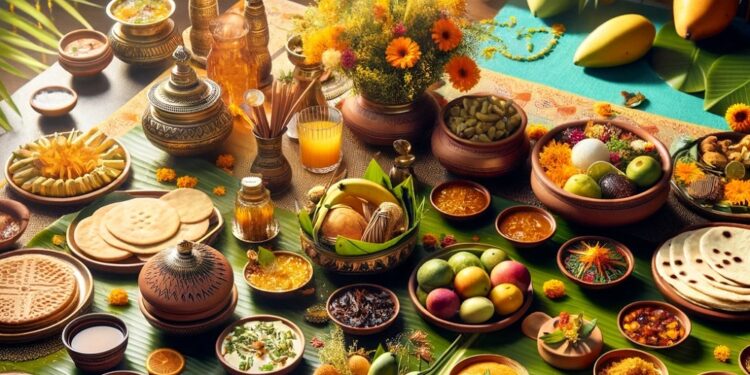
Ugadi
Ugadi is New Year’s Day for those who live on the Deccan Plateau in India. It is a spring festival celebrated between late March and early April, on the first New Moon after the Vernal Equinox. It is a joyous holiday celebrated by millions of people each year and is traditionally thought of as a time for new beginnings, not only for the individual but for the planet as well.
History
It is believed that on this day, Lord Brahma created not only the Earth but also all the living things on it. The very word “Ugadi” means “beginning of a new age.” It is a holiday that has been celebrated since medieval times.
Celebrations And Traditions
Most households in India that celebrate this holiday begin making preparations for it a week in advance. During this time, houses and streets are thoroughly cleaned and put in order. This is usually done by performing a whitewashing over the entire house and ensuring that the yard is in proper order by decorating it with rangolis—an Indian folk art characterized by creating intricate patterns using colored sand or rice. Another common practice is to splash cow dung water on the threshold of the house for good luck. During this time, households are also decorated with jasmine flowers.
The day of the festival usually begins with a ritual oil bath using sesame oil, after which prayers are recited and many different dishes are cooked and enjoyed. One of these dishes is Ugadi Pachadi, the dish of six tastes. It is a dish that combines bitter Indian lilac, sweet cane sugar, hot chili pepper, salt, sour tamarind juice, and tangy green mango. These six tastes are meant to signify the corresponding emotional states of sadness, happiness, anger, fear, disgust, and surprise. Another dish commonly created during this holiday is Puran Poli, a sweet flatbread.








